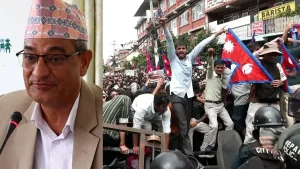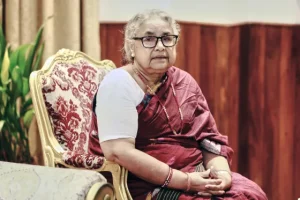New Delhi – The Modi Sushila Karki Nepal diplomatic response has highlighted India’s unwavering commitment to regional stability as Prime Minister Narendra Modi extended his best wishes to Nepal’s newly appointed interim Prime Minister. The statement came after Sushila Karki, Nepal’s former Chief Justice and first woman Prime Minister, was sworn in following days of unprecedented political turmoil in the Himalayan nation.
Modi’s reaction to the Modi Sushila Karki Nepal developments demonstrates India’s continued diplomatic engagement with its northern neighbor during this critical transitional period. The Indian Prime Minister’s response reflects both congratulations for the historic appointment and reaffirmation of bilateral cooperation principles that have guided India-Nepal relations for decades.
Prime Minister Modi’s Official Statement
In his official response to the Modi Sushila Karki Nepal situation, Prime Minister Narendra Modi issued a carefully crafted social media statement emphasizing India’s long-term commitment to Nepal’s development and stability. “I extend my best wishes to Right Hon. Mrs. Sushila Karki on assuming office as the Prime Minister of the Interim Government of Nepal. India remains firmly committed to the peace, progress and prosperity of the people of Nepal,” Modi declared.
This Modi Sushila Karki Nepal statement represents more than diplomatic courtesy; it signals India’s recognition of the legitimate transition process despite the unconventional circumstances that brought Karki to power. The timing and content of Modi’s message suggest India’s acceptance of the interim government arrangement as a stabilizing force in the region.
Background of Nepal’s Political Crisis

The Modi Sushila Karki Nepal response comes after weeks of intense political upheaval that began with Gen Z protests against social media bans and expanded into broader demonstrations against corruption and misrule under former Prime Minister KP Sharma Oli’s administration. Student-led protests ultimately forced Oli’s resignation after a violent police crackdown resulted in more than 20 deaths, primarily among young protesters.
The situation deteriorated further even after Oli’s departure, with violent mobs rampaging through Kathmandu and other cities, torching official buildings including Parliament and political leaders’ homes. The army eventually restored order, but not before more than 50 people lost their lives in the widespread violence that preceded the Modi Sushila Karki Nepal transition.
India’s Diplomatic Engagement During Crisis

Prior to the Modi Sushila Karki Nepal statement, India had been closely monitoring the deteriorating situation through high-level security consultations. On Tuesday, Modi chaired a meeting of the Cabinet Committee on Security specifically to discuss Nepal’s crisis, demonstrating the priority India places on its neighbor’s stability.
During the height of the violence, Modi had appealed for peace in Nepal, describing the situation as “heart-rending” and expressing anguish over the death of many young people. His earlier statement that “the stability, peace and prosperity of Nepal are of utmost importance to us” set the foundation for the supportive Modi Sushila Karki Nepal response that followed.
External Affairs Ministry’s Position
The Modi Sushila Karki Nepal diplomatic approach was complemented by the External Affairs Ministry’s official welcome of the interim government formation. The ministry’s late Friday night statement emphasized India’s multifaceted relationship with Nepal, describing the countries as “a close neighbour, a fellow democracy and a long term development partner.”
This institutional backing reinforces the Modi Sushila Karki Nepal message, indicating that India’s support extends beyond personal diplomatic courtesy to encompass formal government-to-government relations. The ministry committed to continued close cooperation “for the well-being and prosperity of our two peoples and countries.”
Significance of Karki’s Appointment


The Modi Sushila Karki Nepal reaction gains additional significance given Karki’s unique background as an anti-corruption activist and former Chief Justice. Her selection by student protest groups represents a departure from traditional political appointments, making India’s swift diplomatic recognition particularly noteworthy in regional politics.
As Nepal’s first woman Prime Minister, Karki’s appointment also carries symbolic importance that the Modi Sushila Karki Nepal statement implicitly acknowledges. Her role as head of an interim government tasked with overseeing elections and restoring democratic normalcy aligns with India’s stated preference for democratic governance in the region.
Future Bilateral Relations
The Modi Sushila Karki Nepal exchange sets a positive tone for future India-Nepal relations under the interim government. Modi’s emphasis on peace, progress, and prosperity suggests India’s readiness to work constructively with Karki’s administration while respecting Nepal’s sovereignty and democratic processes.
This diplomatic approach in the Modi Sushila Karki Nepal context reflects India’s broader regional strategy of maintaining stable relationships with neighboring countries regardless of internal political transitions. The measured response demonstrates diplomatic maturity in handling sensitive political situations while preserving long-term strategic interests and regional stability.


